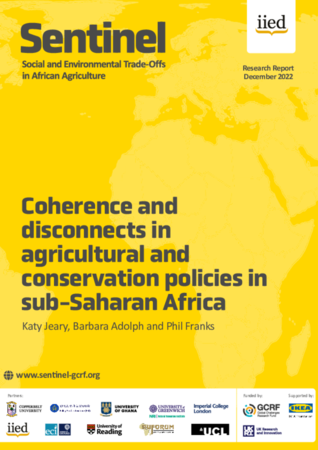Coherence and disconnects in agricultural and conservation policies in Sub-Saharan Africa
Managing competing objectives of sustainable development at local, national, and global levels is a major challenge for governments. Achieving policy coherence is critical to balance the competing demands of conserving critical natural habitats and other forms of land use.
This report summarises an analysis of national agriculture, land use, climate change, biodiversity conservation and forest policy coherence in three African countries: Ethiopia, Ghana, and Zambia. The aim of the study was to understand the general nature of coherence, as well as the underlying objectives of each country’s national policies; to identify synergies and disconnects between objectives; and to increase knowledge of how these synergies and disconnects may affect policy development and implementation.
